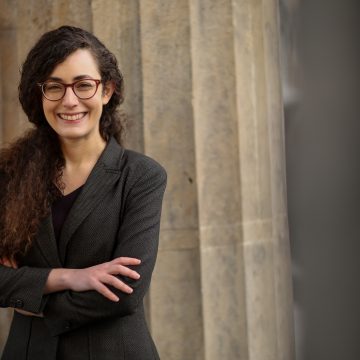PLAY
Yosele solovey
[Yosele the Nightingale]Synopsis
Part `I. The famous Yiddish humorist, Sholem Aleichem, has decided to write a novel based on the life of the well-known Jewish youth, Yosele, the Nightingale, an outstanding singer, who has found fame and renown in the province of Mazepevke.
In this town the author meets the characters of his story. The hero, the sixteen-year-old Yosele, is constantly scolded and berated by his stepmother, Fage Bashe, who is trying to force him to marry the daughter of the wealthiest man in town for the sake of her large dowry. Yosele’s grief is aggravated by his beleaguered father. Yosele would like to escape this ordeal by leaving town, but is deeply in love with Esther, and therefore must suffer the consequences by remaining at home.
A ray of hope brightens the horizon with the appearance of the fantastic and grotesque choir-master, Gedalye Bass, who is in search of new singing talent for cantors. He is highly impressed with Yosele’s voice and contemplates a glorious future for him in far-away places. But the father is too fond of his son to let him enter into any adventurous enterprises with the dubious Gedalye.
Unable to reach a decision, the father and Gedalye rush to the famous writer, Sholem Aleichem, for advice. Sholem Aleichem, grasping the selfish motives of the oblivious Gedalye, warns Yosele’s father not to trust the ravings of the supposed impresario. The author then arranges to hear the singing of Yosele. In the woods near the cemetery where his mother is buried, Yosele renders his own composition, and at the same time vows his eternal love for his sweetheart, Esther. Sholem Aleichem, enthused with the voice of his hero, is eager to recommend him to the most outstanding cantors of Russia. At this point Gedalye Bass intervenes by producing a personal letter from a famous cantor, requesting the immediate engagements of Yosele and himself. There is great joy in Yosele’s home, as he takes leave of his father. His sweetheart is saddened and feels forsaken amidst all the gaiety that follows.
Part II. For two years Yosele has travelled, singing in the great synagogues of various cities and towns. But he finds himself enslaved by his benefactor, Gedalye, who does not permit him to visit his father and his sweetheart, and is unhappy by nightmares and premonitions of his father’s illness. Gedalye is alarmed and finally consents to let him return to his home.
But here the situation becomes more complex with the appearance of the wealthy and alluring Perele, who is desperately in love with Yosele. She hints that her husband’s span of life is of short duration and she will soon inherit his numerous properties, and offers all this wealth to Yosele for his love and hand in marriage. But Yosele, feeling that this woman would be detrimental to his career, returns home.
His father, Esther, her mother and even his stepmother are elated at his return, and he sets the date for his marriage with Esther. Suddenly Perele appears in mourning attire announcing the death of her husband. Yosele is bewildered and tormented by the appearance of the bewitching Perele.
Yosele leaves home with Gedalye for various engagements in synagogues. On the way he is led by Gedalye to the rich home of Perele and there he succumbs to her charms and marries her. The marriage is very profitable to Gedalye and he leaves Yosele, who has deserted his holy vocation as cantor and now lives a life of luxury and leisure. But Yosele finds only solace at the piano, for night life and leisure have dulled him. Disillusioned with his spouse and her enterprises, he abandons his rich home and returns to Gedalye and his vocation, only to discover that his voice has failed him; he cannot sing as before.
Somewhere in a little town he again meets Sholem Aleichem, who brings him the sad tidings that tomorrow his beloved Esther is to marry the richest man of Mazepevke. He rushes to the rescue of Esther from the old man, but alas, it is too late. The ceremony has taken place. Yosele collapses, Gedalye is remorseful, blaming himself for this state of affairs.
Yosele, in delirium, begins chanting liturgical songs. Sholem Aleichem appears, regretting that he could not find a happy ending for this story, as life is stranger than fiction.
Adapted from a 1950 Yiddish Art Theater program by Sonia Gollance.
